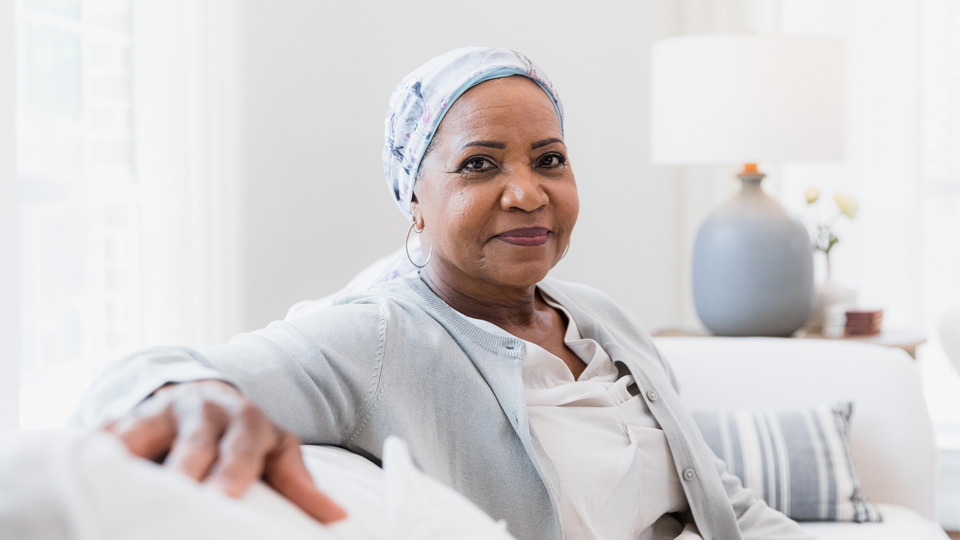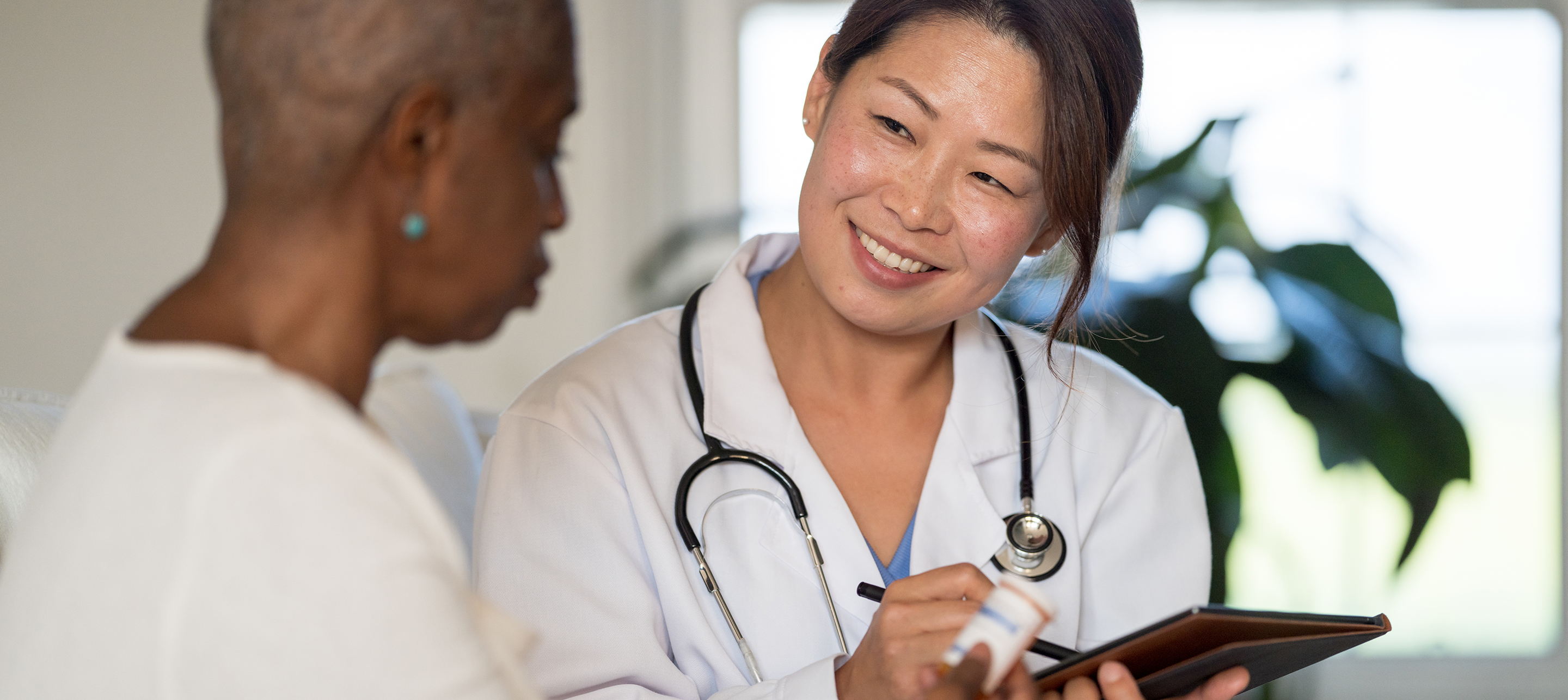Breast cancer is the most common cancer diagnosis in the United States. According to the American Cancer Society, there were an estimated 310,720 new cases of invasive breast cancer diagnosed in women in the United States in 2024.
In addition to well-known risk factors such as family history, age, and behavior, socioeconomic factors such as where people live and work can impact health outcomes. For example, living in an area with higher social needs is associated with breast cancer being diagnosed at a later stage among Black, Indigenous, and Hispanic women, compared with white women.
To better understand how socioeconomic disparities impact screening and care, the Evernorth Research Institute analyzed claims data of more than 168,000 women who had been diagnosed with breast cancer between January 2017 and December 2022 and who were covered by commercial health insurance, Medicaid, or Medicare.
“We learned that the rates of screening were lowest among women living in areas with very high social needs," said Urvashi Patel, PhD, head of the Evernorth Research Institute. "The rates of mastectomies, chemotherapy and radiation therapy were also higher among this group. This suggests that these patients may be getting diagnosed in more advanced stages of their cancer, which is also associated with worse outcomes. The key takeaway here is that we need to do more as an industry to improve access to preventive screenings for women living in areas with higher social needs.”
Women living in areas with higher social needs had lower rates of breast cancer screenings
Breast cancer screening by mammography has long been advocated as a measure to diagnose cancer earlier. While 89.6% of women in our study received a mammogram before their diagnosis, the rates of screening varied by levels of social needs.
Screening rates were higher among women in areas with low social needs (90.6%) compared to those in areas with higher needs.
Percentage of women with a prior screening within 3 years of breast cancer diagnosis by level of social needs
| Low, N = 50,719 | Medium, N = 45,110 | High, N = 28,136 | Very High, N = 44,751 |
| 45,945 (90.6%) | 41,222 (91.4%) | 25,023 (88.9%) | 38,941 (87.0%) |
Women living in areas with higher social needs had more mastectomies, chemotherapy and radiation which together are likely indicators of advanced cancer
Social determinants of health such as age, ethnicity, place of residence, and social support are strongly linked to breast cancer prevalence, access to care, and outcomes. Our study showed that the type of surgery for women with breast cancer also differs by level of social needs.
Women diagnosed with early stage breast cancer often are candidates for a lumpectomy, while those with advanced cancer (i.e., larger tumors) may need a mastectomy. Our research found that rates of lumpectomies – the least invasive surgery – were highest among those living in areas with low social needs (31.5%). In contrast, women living in areas with the highest social needs had the highest rates of mastectomies (30.6%).
Women living in areas with higher social needs were less likely to undergo reconstruction surgery
Breast reconstruction after mastectomy can help restore body image and improve health-related quality of life. However, some women don't get reconstruction despite getting mastectomy. In our study, approximately one-third of all women had reconstruction. Among those who had breast reconstruction surgery, the rate was lower among women living in areas with higher social needs (42.7% vs. 57.3% for lower needs areas).
“The health care industry must come together to understand and address barriers that can lead and contribute to disparities,” said Dr. Roseleen Charania, an oncologist and Associate Chief Medical Officer at Evernorth. “Each patient’s journey is different, and removing barriers to care will improve patient outcomes and satisfaction.”
Originally published on 10/5/2023 and updated on 4/16/2025.
The Evernorth Research Institute is a catalyst for change, generating industry-leading thinking that will redefine health care as we know it. Combining Evernorth’s unmatched data, analytics and health care expertise to unlock pivotal health care insights that incite action and guide meaningful progress in health care.



